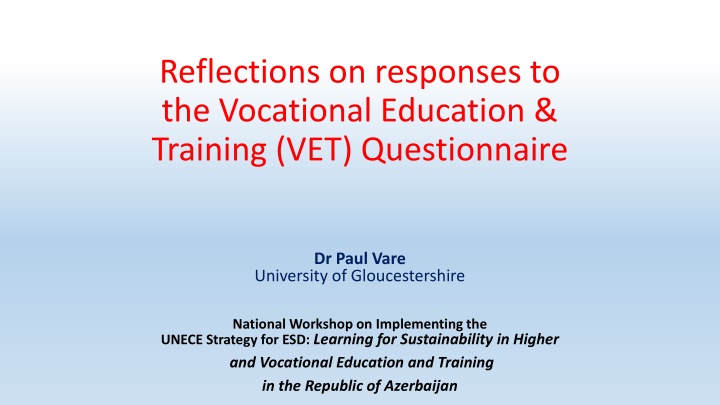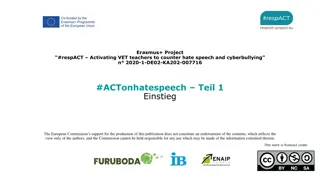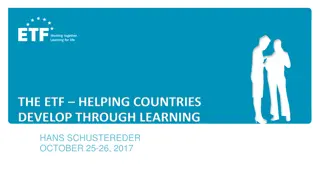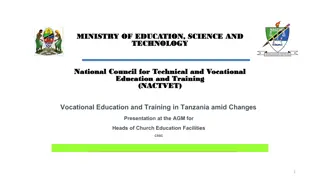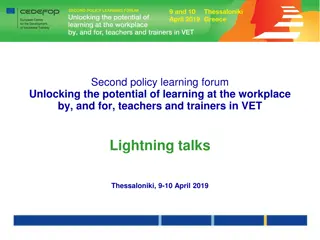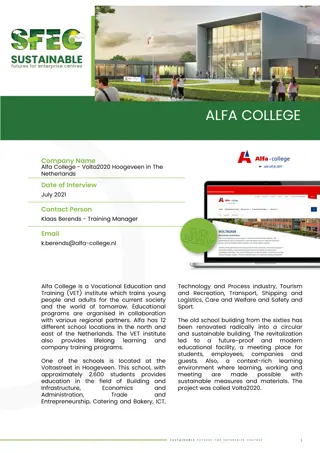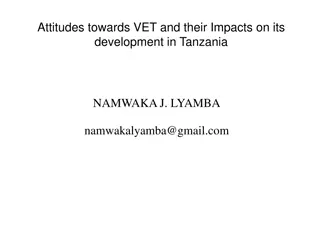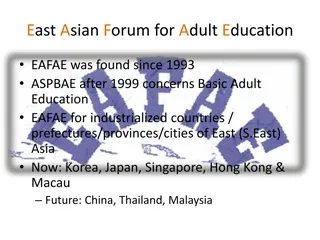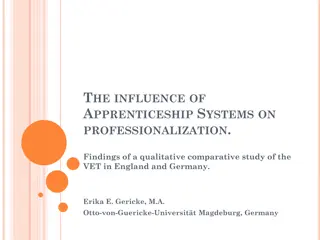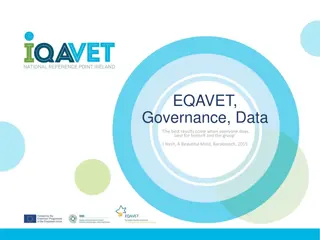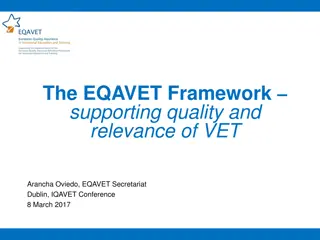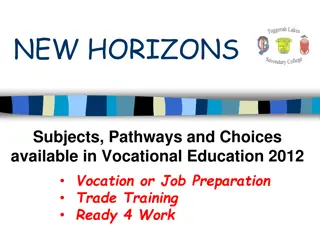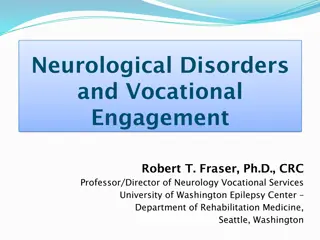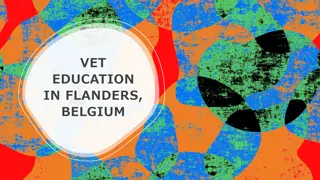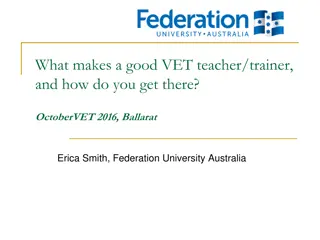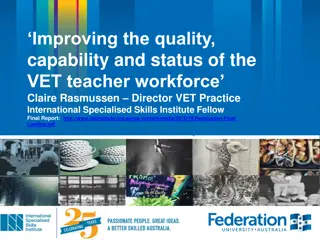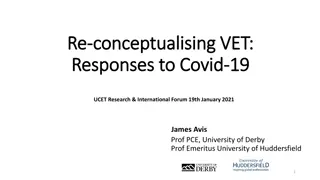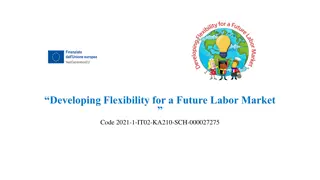Reflections on Vocational Education & Sustainable Development in VET Programs
The reflections from Dr. Paul Vare's study highlight key responses to Vocational Education & Training (VET) in Azerbaijan, focusing on sustainable development, labor market needs, pedagogical approaches, and identified needs for improvement. The analysis delves into the awareness of international frameworks, current challenges, and proposed strategies within the VET sector.
Download Presentation

Please find below an Image/Link to download the presentation.
The content on the website is provided AS IS for your information and personal use only. It may not be sold, licensed, or shared on other websites without obtaining consent from the author.If you encounter any issues during the download, it is possible that the publisher has removed the file from their server.
You are allowed to download the files provided on this website for personal or commercial use, subject to the condition that they are used lawfully. All files are the property of their respective owners.
The content on the website is provided AS IS for your information and personal use only. It may not be sold, licensed, or shared on other websites without obtaining consent from the author.
E N D
Presentation Transcript
Reflections on responses to the Vocational Education & Training (VET) Questionnaire Dr Paul Vare University of Gloucestershire National Workshop on Implementing the UNECE Strategy for ESD: Learning for Sustainability in Higher and Vocational Education and Training in the Republic of Azerbaijan
Respondents 3 Ministries 2 Business sector 6 Vocational centres 1 University
Sustainable development in VET programmes and strategies Awareness of international frameworks - Sustainable Development Goals (SDGs) Some aspects of VET refer to poverty reduction, quality education, gender equality and other areas UN SDGs are referenced but some evidence of confusion, e.g. citing generic National Qualifications Framework for Lifelong Learning in Azerbaijan Students taught long-term occupations and specialties evidence of economic sustainability.
Balance between current and future labour market needs Calls for investment in infrastructure Some work with schoolchildren, e.g. meetings employers; study tours Some vocational centres study the labour market BUT currently trained personnel in agricultural sector do not meet current requirements Oil & gas sector estimates 20-30% of training is focused on future (unforeseen) needs.
Pedagogical approaches a mixed picture Each educator chooses their own approach therefore adapted to context Competences may be defined in curricula but can change according to employers requirements Demand-oriented curricula have been developed for the first time Both curriculum content and relevant competencies of educators are important There are few rules for the attestation of students in VET The dual approach is used, i.e. learning at vocational centres and work- based apprenticeships in the same programme (e.g. ADAU working with Gabala Vocational School, supported by GIZ).
Stated needs Update skills & knowledge of trainers Improve curricula & materials Attract new highly qualified specialists to VET system Promote better relations with employers
SD-specific Which competences do educators need to for ESD? UNESCO Key competences Creative thinking openness to innovations Global perspective international experience (a foreign language) Relationship building with students and employers Self-development constant skills development learning to learn Problem solving skills Research Pedagogical skills, including technological skills Subject knowledge (e.g. Climate Smart Agriculture; organic farming) Organisational skills management, presentation and communication Generic
Participation in VET policy and programmes 1 Parents, students, educators, employers, entrepreneurs plus experts involved in training Employers and entrepreneurs involved in evaluation of internships Government agencies and partners must work together on VET Regulations require sector skills commissions to adapt curricula to labour market needs, e.g. VET policy in Agriculture Employer participation in the development of curricula is preferred KOBIA provides advice on market research, internship and evaluation of small and medium-sized enterprises
Participation in VET policy and programmes 2 Calls to strengthen interaction among ministries, universities, vocational education institutions, employers, etc. Need for relevant parties to develop curriculum relevant to UN SDGs Opportunities for cooperation are still limited BUT the preference of employers for VET graduates is welcomed Media coverage for this work is poor. Support from: Employment Subsystem (ESS) National Observatory on Labour Market and Social Welfare Small and Medium Business Development Agency (SMBDA/KOBIA).
Reflections: High degree of commitment and ambition Recognition of need for Government agencies, employers and other partners to work together more closely Need more systemic view linking economic and sustainable development Trainer competences: distinguish between generic skills, subject knowledge & sustainable development they are part of a complex whole Supportive institutional environment BUT need for clearer rules and regulations to support responsive and sustainable curricula When importing approaches (e.g. dual programmes) ensure they are adapted to be well suited to the local context.
